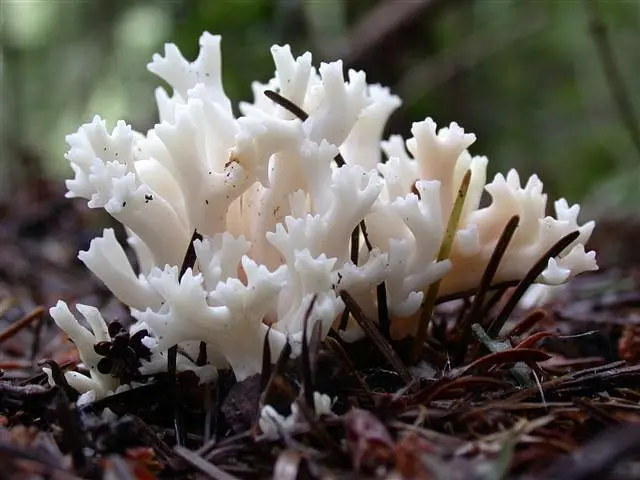Clavulina coral (Clavulina coralloides)
- Division: Basidiomycota (Basidiomycetes)
- Subdivision: Agaricomycotina (Agaricomycetes)
- Class: Agaricomycetes (Agaricomycetes)
- Subclass: Incertae sedis (of uncertain position)
- Order: Cantharellales (Chanterella (Cantarella))
- Family: Clavulinaceae (Clavulinaceae)
- Genus: Clavulina
- Type: Clavulina coralloides (Clavulina coral)
- Horned comb
- Clavulina combed
- Clavulina cristata

Description:
Fruiting body of Clavulina coral-like height 3-5 (10) cm, bushy, branched with pointed branches, with lobed flat comb tops, white or cream (rarely yellowish) fawn in color. The base forms a short dense stem 1-2 (5) cm high. Spore powder is white.
The pulp is fragile, light, without a special smell, sometimes with a bitter aftertaste.
Spread:
Clavulina coralline grows from mid-July to October (massively from late August to mid-September) in deciduous (with birch), more often coniferous and mixed forests, on litter, on soil, in grass, occurs singly and in groups, in a bunch, often.
The similarity:
From other species (for example, from wrinkled Clavulina (Clavulina rugosa), Coral-like Clavulina differs in flat, pointed, comb-like endings of branches.
Evaluation:
Clavulina coral Considered inedible mushroom because of the bitter taste, according to other sources, edible low quality.









